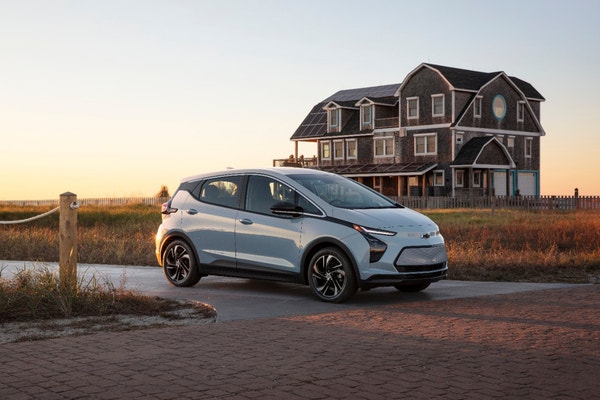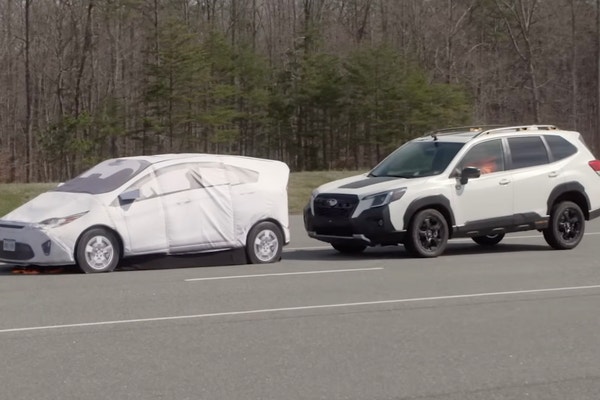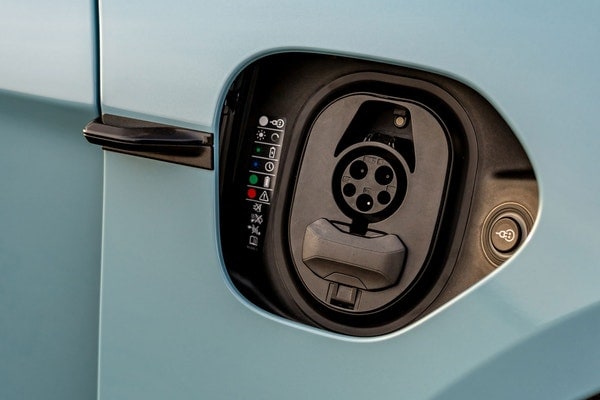Used 2012 Chevrolet Volt Base Hatchback Review
Consumer reviews
Read what other owners think about the 2012 Chevrolet Volt Base Hatchback.
Most helpful consumer reviews
Cold Weather Volt Owner
voltman, Athens, OH, 02/27/2012
2012 Chevrolet Volt 4dr Hatchback (gas/electric hybrid DD)
I live in Minnesota and have 2 months of winter driving experience with my Volt.
Like other owners I can say I love the car.
Fit and finish and design are stunning.
The heater works fine which was a concern of mine.
There are 2 heater modes.
Eco consumes less battery but doesn't heat as effectively.
Regular is equivalent to other cars.
When it is quite cold (less than 28 F), the battery … will get you 33 miles but beware the gas engine will go on for about 5 of those miles to keep the battery and cabin warm.
The best you'll get is about 130 mpg for those 33 miles.
Above 30 F, you can expect 30 miles per charge with no use of the gas engine.
In general, I have gotten 37 mpg on gas.
Excellent car but beware if you have an accident!
urbanlegend711, Newark, DE, 11/15/2013
2012 Chevrolet Volt 4dr Hatchback (gas/electric hybrid DD)
I have been really impressed with the car overall. It has great acceleration, handles beautifully and didn't give me a single problem in 1.5 years and 22k miles. I had a minor front-end collision in September and the car still ran when I left it. Apparently because it's a hybrid the electronics need to be disconnected for welding. The car went to a dealer to have this done, the body shop … then repaired it, but now...2 and a half months later, the dealer cannot get the car to run at all. Repairs appear to be very involved, expensive and risky with this car.
Amazing Economic Sportscar
l4kmttnt, Beverly, MA, 12/09/2011
2012 Chevrolet Volt 4dr Hatchback (gas/electric hybrid DD)
Outstanding experience thus far! I am an integration manager for a large company traveling 40+ wks out of the year. This has given me the opportunity to drive many, many makes and models of vehicles as I must rent a car every week for work. When my wife and I decided to purchase a new car last month -we specifically went to our local Chevy dealer in search of a Chevy Cruze as I felt it … was the BEST sporty and economical car of choice. HOWEVER, we had the chance to drive a Volt and immediately fell in love with the performance, comfort, long-range savings opportunity and overall sportiness of the car. We are 100% happy thus far and look forward to many satisfying miles as we pass by the pump.
After 6 months - 308 mpg
igh, Sunnyvale, CA, 08/24/2012
2012 Chevrolet Volt 4dr Hatchback (gas/electric hybrid DD)
Currently at 4500 miles with 14.6 gallons spent. Have not visited the dealer once after buying. Oil life is at 96%. Looks like first maintenance will be after 2-3 years other than the tire rotation. Will buy one more pure EV soon. Bye bye Shell/Chevron/Exxon.
Edmunds Summary Review of the 2012 Chevrolet Volt Base Hatchback
Pros & Cons
- Pro:Low monthly fuel cost in normal driving
- Pro:useful 300-mile maximum range
- Pro:appealing standard features
- Pro:excellent crash test scores.
- Con:Questionable value
- Con:small backseat for two people only
- Con:touchy brakes
- Con:no power front seats
- Con:home charger is a necessity
Full Edmunds Review: 2012 Chevrolet Volt Hatchback
Edmunds Insurance Estimator
The Edmunds TCO® estimated monthly insurance payment for a 2012 Chevrolet Volt in Ohio is:
not availableLegal



